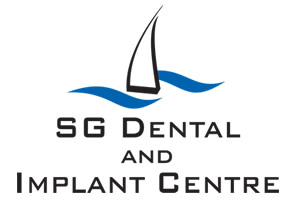Recovering From Your Tooth Extraction
Some helpful tips for the postoperative period.
Here at Mike Allen’s Dental Practice, we always try to repair and save your natural teeth wherever possible, but sometimes this may not always be an option. There may also be situations where it is possible to do so, but would mean that the tooth would have minimum functionality and/or would be likely to break again very soon. Once this stage has been reached, an extraction is the most likely way forward.
The extraction of a tooth does cause some minor trauma in the area of extraction. The gums will obviously bleed a little due to the localised disruption which happens as the tooth is gently rocked from side to side to loosen it from its socket before removal.
Aftercare
To prevent infection and to speed up healing times, it is important that you look after the area of your mouth from which the tooth has been removed. Initially, you will be given a piece of sterile gauze to bite down upon to stem the bleeding and this will also allow a blood clot to form which starts the healing process. It is very important that you do not dislodge this as this can lead to a ‘dry socket’ which can be very painful. If this does happen to you, please call our Burton dental practice to arrange to see the dentist as soon as possible.
Below, we offer some useful aftercare advice during the various stages following your extraction.
Immediate aftercare
Once the blood clot has formed and you leave our Burton practice, do not poke at the clot with your fingers, tongue or any other implement at all. This may not only dislodge it but also increases the risk of infections. Try to avoid eating or drinking anything for a few hours afterwards to help the clot become more established. When you do eat, try to eat softer foods and avoid using that area of the mouth altogether to chew.
You will not be able to brush the gums at this stage, but you can use a warm (not hot) saline solution and gently tip it around the area. Do not swill or spit when you do this as this may dislodge the blood clot.
Intermediate aftercare
Although the blood clot will become more established after a few days, it may still become dislodged if you are not careful. Whilst you will be able to eat more normally, it is still best to avoid the area of the extraction as much as possible. Care should be taken when brushing the teeth and you will need to use a soft brush for that area for a little time.
Long term aftercare
Gradually, your gums will be strong enough for you to eat normally and without concern. You do need to continue to brush the gums gently though, in order to help avoid gum disease. Bone loss may well occur in this area once a tooth has been extracted. This is natural but can be lessened by having a replacement tooth root, in the form of a dental implant, placed in the jaw to form a firm foundation for a replacement tooth.
You will be given full aftercare advice at Mike Allen’s Dental Practice following your extraction. It is important that you stick to this to ensure that the area remains healthy and free of infection. We are always happy to help and should you have any concerns following the extraction; simply call our Burton family dental practice on 01283 845345.
